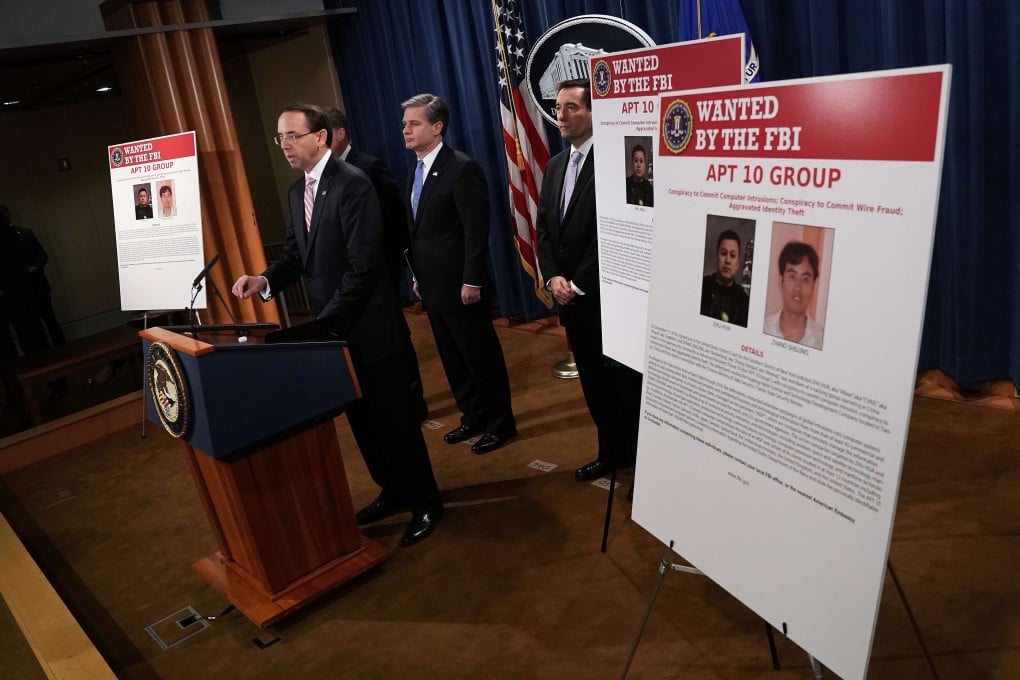China accused by US and allies of ‘massive hacking campaign to steal trade secrets and technologies’
- The US claims the alleged massive hacking efforts violate the terms of agreements reached with China in late 2015
- Beijing accused Washington of ‘fabricating facts’ and urged US to ‘stop smearing Chinese on cybersecurity issues’

The United States accused China on Thursday of sustained efforts to steal trade secrets and technologies from at least 12 countries in an enormous hacking campaign – a move that deals a blow to Beijing during negotiations to ease the trade war.
The US Justice Department announced criminal indictments against two accused hackers associated with the Chinese government. Zhu Hua and Zhang Shilong, who the US say acted on behalf of the Chinese Ministry of State Security (MSS), were charged with conspiracy to hack into a dozen companies and government agencies in the US and around the world.
The defendants worked for Huaying Haitai Science and Technology Development Company in Tianjin, China, and acted on behalf of the MSS’s Tianjin bureau, Deputy Attorney General Rod Rosenstein said on Thursday.
The indictment said the defendants stole data from companies in the US, Brazil, Canada, Finland, France, Germany, India, Japan, Sweden, Switzerland, the United Arab Emirates and the United Kingdom.
The hackers attacked industries such as banking and finance, telecommunications, consumer electronics, medical equipment and packaging, as well as government agencies, Rosenstein said.